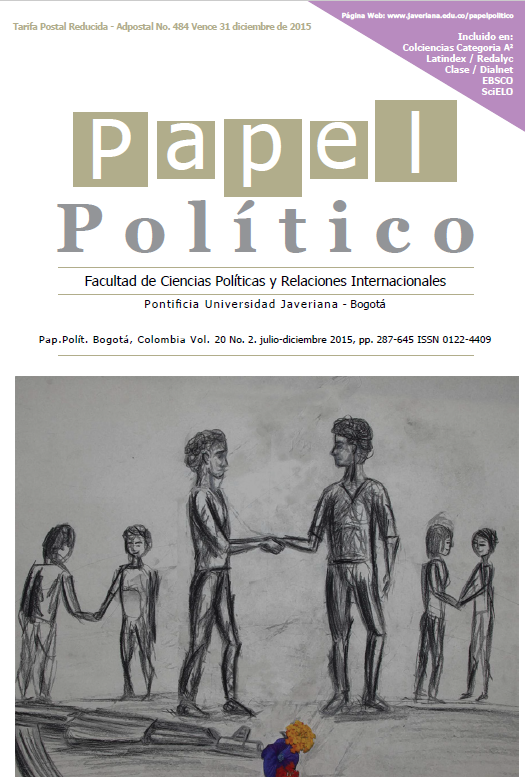Resumen
El artículo aborda, desde una perspectiva interdisciplinaria, el impacto que el largo y tortuoso proceso de construcción del Estado en Latinoamérica ha tenido sobre la forma en que se han desarrollado los procesos de regionalización en el subcontinente. Primero, se contrastan las ideas clásicas y contemporáneas sobre la soberanía, a fin de establecer de forma diferenciada la manera en que dicho principio, desde una perspectiva histórica, ha tomado forma en la construcción del Estado y en la concreción de procesos de regionalización tanto en Latinoamérica como en Europa. Segundo, se presentan los elementos generales del pensamiento sobre la integración europea conectándolos con su experiencia histórica. Tercero, se interpreta el proceso de construcción de los Estados nación latinoamericanos y el impacto que haN tenido en su renuencia a ceder soberanía a entes supranacionales. Cuarto, se destaca el rol que han desempeñado ideas, tales como el panamericanismo, latinoamericanismo, suramericanismo y bolivarismo en el desarrollo de los procesos de regionalización en Latinoamérica. Quinto, se definen los rasgos característicos de las tres olas de integración y la renuencia de los Estados latinoamericanos a transferir soberanía a las arquitecturas de gobernanza regional. Sexto, se compara el concepto de soberanía en América Latina y en Europa así como el impacto que ha tenido en sus respectivos procesos de regionalización. Finalmente a partir de la compresión de la problemática del proceso inconcluso de construcción del Estado en Latinoamérica, se evalúan las perspectivas de desarrollo de los procesos de regionalización actuales.
Esta revista científica se encuentra registrada bajo la licencia Creative Commons Reconocimiento 4.0 Internacional. Por lo tanto, esta obra se puede reproducir, distribuir y comunicar públicamente en formato digital, siempre que se reconozca el nombre de los autores y a la Pontificia Universidad Javeriana. Se permite citar, adaptar, transformar, autoarchivar, republicar y crear a partir del material, para cualquier finalidad (incluso comercial), siempre que se reconozca adecuadamente la autoría, se proporcione un enlace a la obra original y se indique si se han realizado cambios. La Pontificia Universidad Javeriana no retiene los derechos sobre las obras publicadas y los contenidos son responsabilidad exclusiva de los autores, quienes conservan sus derechos morales, intelectuales, de privacidad y publicidad.
El aval sobre la intervención de la obra (revisión, corrección de estilo, traducción, diagramación) y su posterior divulgación se otorga mediante una licencia de uso y no a través de una cesión de derechos, lo que representa que la revista y la Pontificia Universidad Javeriana se eximen de cualquier responsabilidad que se pueda derivar de una mala práctica ética por parte de los autores. En consecuencia de la protección brindada por la licencia de uso, la revista no se encuentra en la obligación de publicar retractaciones o modificar la información ya publicada, a no ser que la errata surja del proceso de gestión editorial. La publicación de contenidos en esta revista no representa regalías para los contribuyentes.


